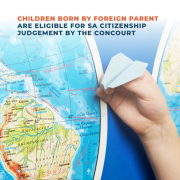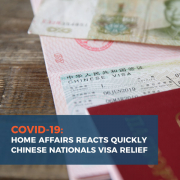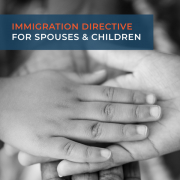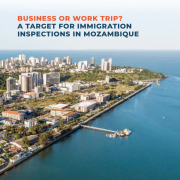NEWS | THE NEGATIVE IMPACT OF UNDESIRABLE STATUS
/in Archived, News /by xp-adminAccording to South African Immigration Act, a foreigner may, therefore, be declared undesirable by the Director-General of Home Affairs if he or she has overstayed his or her South Africa visa.
Regulation 27(3) stipulates that a person who overstays after the expiry of his or her visa will be declared as ‘undesirable’. The period of the declaration is determined by establishing the number of foreign national’s period of overstay in the Republic.
A declaration of undesirability status effectively precludes you from applying for a visa and re-entering the Republic for the specified periods of time, as set out in the Regulation:
- In the case of a person who overstays for a period not exceeding 30 days, be declared undesirable for a period of 12 months
- In the case of a person who overstays for the second time within the period of 24 months, be declared undesirable for a period of two years
- In the case of a person who overstays for more than 30 days, be declared undesirable for a period of five years
Poor Promulgation of the Regulation blamed for the Increase of Undesirable Cases
Lately there has been an increase of foreigners who have already submitted the extension of their visa application and have attempted to return to their country of residence and were declared undesirable upon departure. In the past the foreigners could get away with this, with just producing an original acknowledgement of receipt and proof of payment to the official at the Port of Entry upon their arrival and departure. The change in regulation has been poorly publicised and as a result, many foreigners have attempted to depart the country only to be declared an undesirable person upon doing so.
In the case of Johnson and Others v Minister of Home Affairs and Others; InRe: Delorie and Others v Minister of Home Affairs and Another (10310/2014, 10452/2014) [2014] ZAWCHC 101 (30 June 2014) the Western Cape High Court considered the effect of Section 30 (1) (h), Regulation 27 (3) and the directive on two families separated due to declarations of undesirability.
The Johnson case concerned Louise Henrikson Egedal-Johnson a Danish national has been married to Brent Johnson a South African national since 2009 and had one child. Egedal-Johnson has been on a Relatives visa since her marriage to Johnson. The visa was issued 28 February 2012 and expired 27 February 2014. On February 10, Egedal-Johnson applied for the extension of her Relavise visa. On 28 May 2014 her visa application was not adjudicated, and she left South Africa from Cape Town International Airport together with her husband. Ongoing through passport control she was declared an undesirable person and was issued with a form declaring her as undesirable person on the basis that she had overstayed her permit by a period of 90 days. On their return to Cape Town she was refused entry at the Cape Town International Airport and subsequently detained by officials on the basis that she had been declared an undesirable person. She was subsequently deported to her country, Denmark, together with the parties’ child.
Egedal-Johnson on behalf of his family applied for urgent relief from the Western Cape High Court. Judge James Yekiso made the following key findings: Shortly before Egedal-Johnson and Henderson had departed the country on May 28, the immigration laws relating to undesirable people had fundamentally changed and the introduction of section 30 (1) (h) meant that foreigners who overstayed on expired permits could be declared as undesirable.
Their statuses meant that Egedal-Johnson, Henderson and their respective families were suffering prejudice. It was held that their statuses be suspended, thus they were permitted to enter and remain in the country.
Appealing the Decision
The major issue is the delays and backlogs faced by the Department of Home Affairs, basically leaving foreigners stuck in their country of residence until they have received an outcome on their applications.
In the event that you are required to travel out of South Africa and you are declared undesirable, you have 10 working days within which to submit a written representations accompanied by supporting documents appealing the decision.
The formal appeal process provides the aggrieved party with an opportunity to convince the Department why their status of undesirability should be removed. One has to provide the Department with a substantial reason in order to change their undesirability status.
The following important factors are considered when one submits their formal written representations to the Department:
- A medical condition that would not allow the person to travel
- A foreigner visiting their family member
- A pending visa or passport application
- Any other personal circumstance that will support the application
These representations can be submitted to the Department of Home Affairs and it is also highly recommended that one should enlist the service of a professional immigration practitioner or attorney to assist. Since the process is quite tedious, the Department will need to conduct certain investigations in order to determine one’s innocence in this matter and if you do not submit an appeal that is compliant with the Act – a delayed or negative outcome is inevitable.
AUTHOR 
Lerato Mahupela
Immigration Specialist






